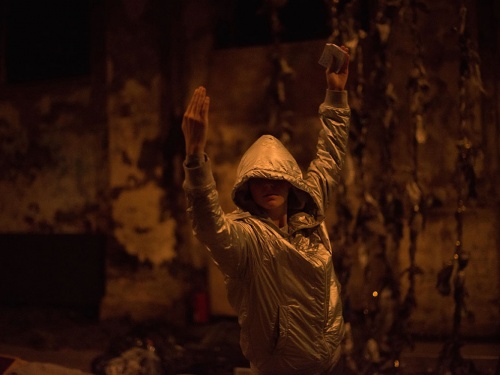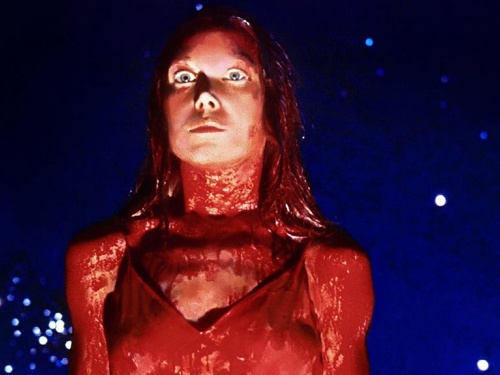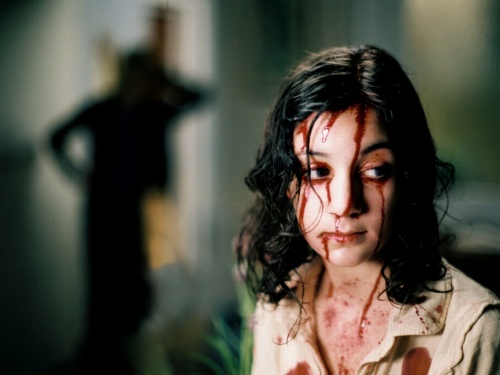Jon Towlson on Jeff Lieberman's Blue Sunshine
Jon Towlson, author of Subversive Horror Cinema: Countercultural Messages of Films from Frankenstein to the Present (McFarland, 2014) introduces Jeff Lieberman’s Blue Sunshine ahead of a screening on Thursday 29 May presented by Cigarette Burns Cinema.
Jeff Lieberman (perhaps best known for Squirm, 1976) remains an important—if somewhat neglected—director within the horror genre. Although not as well recognised by academia as George A. Romero, Wes Craven, John Carpenter, Tobe Hooper or David Cronenberg, his films have extended and enriched the sub-genres popularised by these better known directors. Squirm is easily one of the best ecological horror films derived from Hitchcock’s The Birds (1963); Blue Sunshine (1977) spans the zombie-satire gap between Shivers and Dawn of the Dead; Just Before Dawn (1981) develops the tropes of The Texas Chainsaw Massacre and The Hills Have Eyes; and Satan’s Little Helper (2003) riffs intriguingly on Halloween (1978).
Perhaps more than any of these auteurs, Lieberman has the ability to crystallise the essence of a horror sub-genre in a single striking image. In Blue Sunshine we have the murderous baby sitter stalking her young charges with a large knife; her “invasion-metamorphosis” is signified by her bizarrely bald head, her “possession” by the visual reference to Rosemary’s Baby (1968). In Just Before Dawn, Lieberman’s heroine fends off her backwoods attacker by thrusting her fist down his throat – a gender subversion of the rape/violation imagery redolent in the urbanoia film (most notably the gun-in the-woman’s-mouth scene in The Hills Have Eyes, 1977). In Squirm, we have three such moments, neatly encapsulating the three stages of narrative progression in the apocalypse horror film as identified by film critic Charles Derry: proliferation – the scene where worms infest the face of the antagonist, Roger; besiegement – where the worms threaten to erupt from a showerhead on to the heroine (also, a sly nod to Psycho – linking via The Birds to Hitchcock); finally, annihilation – when the worms invade the house and finally engulf Roger, who sinks into them like a man disappearing into quicksand.
Like other horror film directors of the era, Lieberman’s political awareness informed his work from the start, but his penchant for quirky socio-political satire can perhaps be seen most clearly in Blue Sunshine. The film concerns a group of college students who, in 1967, take a new form of LSD, the titular Blue Sunshine. Ten years later, now grown up and respectable, they discover that the drug has delayed side-effects which cause its users to lose their hair and become homicidal maniacs.
As a ‘70s conspiracy thriller, Blue Sunshine first and foremost plays on the paranoia of post-Watergate America. However, it also amalgamates elements of the psychedelic drug movie of the ‘60s and the invasion-metamorphosis narratives of ‘50s science fiction. Indeed, Blue Sunshine, as Lieberman acknowledges, is heavily indebted to the “radiation cinema” of The Incredible Shrinking Man (1957), which played on government-induced fears about the effects of atomic radiation during the cold war; only instead of radiation, Lieberman plays on early ‘70s fears about the effects of LSD: “The whole idea that LSD could cause chromosome damage, make people freak out and jump off roofs, came from the anti-drug government establishment”, Lieberman told Rob Freese of VideoScope magazine in 2006. “Just saying ‘what a load of crap’ is not entertaining. But trying to visualize what it would look like if these bozos were right was a kick.” Blue Sunshine satirises that point of view and sends up an entire generation in the process of crossing over to “the other side” – the “straight world” of the establishment they claimed to dread during the hippie heyday.
In Blue Sunshine, Jerry Zipkin (played by Zalman King), goes on the run after becoming the prime suspect in a murder committed by a friend suffering the psychotic effects of the drug. Investigating the crime himself with the help of his girlfriend, Alicia (Deborah Winters), Zipkin discovers that old college associate, Ed Flemming (Mark Goddard), now a politician, is trying to cover up his past as the drug dealer who sold his friends the experimental “Blue Sunshine”.
Thanks to Lieberman’s genre savvy, Blue Sunshine places itself firmly alongside other key horror movies of the '70s – Cronenberg’s Shivers and Romero’s Dawn of the Dead - as a prominent invasion-metamorphosis narrative. Derived from Invasion of the Body Snatchers (1956), movies in this subgenre, perhaps because of their emphasis on human transformation and socio-political change, are often some of the era’s most optimistic horror films. Blue Sunshine, like Shivers and Dawn of the Dead, presents the zombie consumer-capitalist impasse of the ‘70s as ultimately surmountable, although - admittedly - it requires a fundamental shift in the values of society – which these films suggest nothing short of a countercultural revolution can bring about.
Blue Sunshine was an immediate hit at Cannes. It was invited to the London Film Festival and Edinburgh Film Festival. However, it was poorly distributed in the States and quickly disappeared. Then, in the early 1980s, Blue Sunshine began to enjoy a growing cult following when the legendary New York nightclub CBGB featured it regularly as background footage on its screens. Now Cigarette Burns Cinema presents a rare showing of Lieberman’s cult classic in 35mm at the ICA. ■
Jon Towlson
Blue Sunshine, written and directed by Jeff Lieberman, screens on Thursday 29 May at 8.40pm with an introduction by Jon Towlson – a Cigarette Burns Presentation.
Text from Subversive Horror Cinema: Countercultural Messages of Films from Frankenstein to the Present © 2014 Jon Towlson by permission of McFarland & Company, Inc., Box 611, Jefferson NC 28640.
This article is posted in: Articles, Film
Tagged with: Blue Sunshine, Jon Towlson, Cigarette Burns, Jeff Lieberman, Horror





